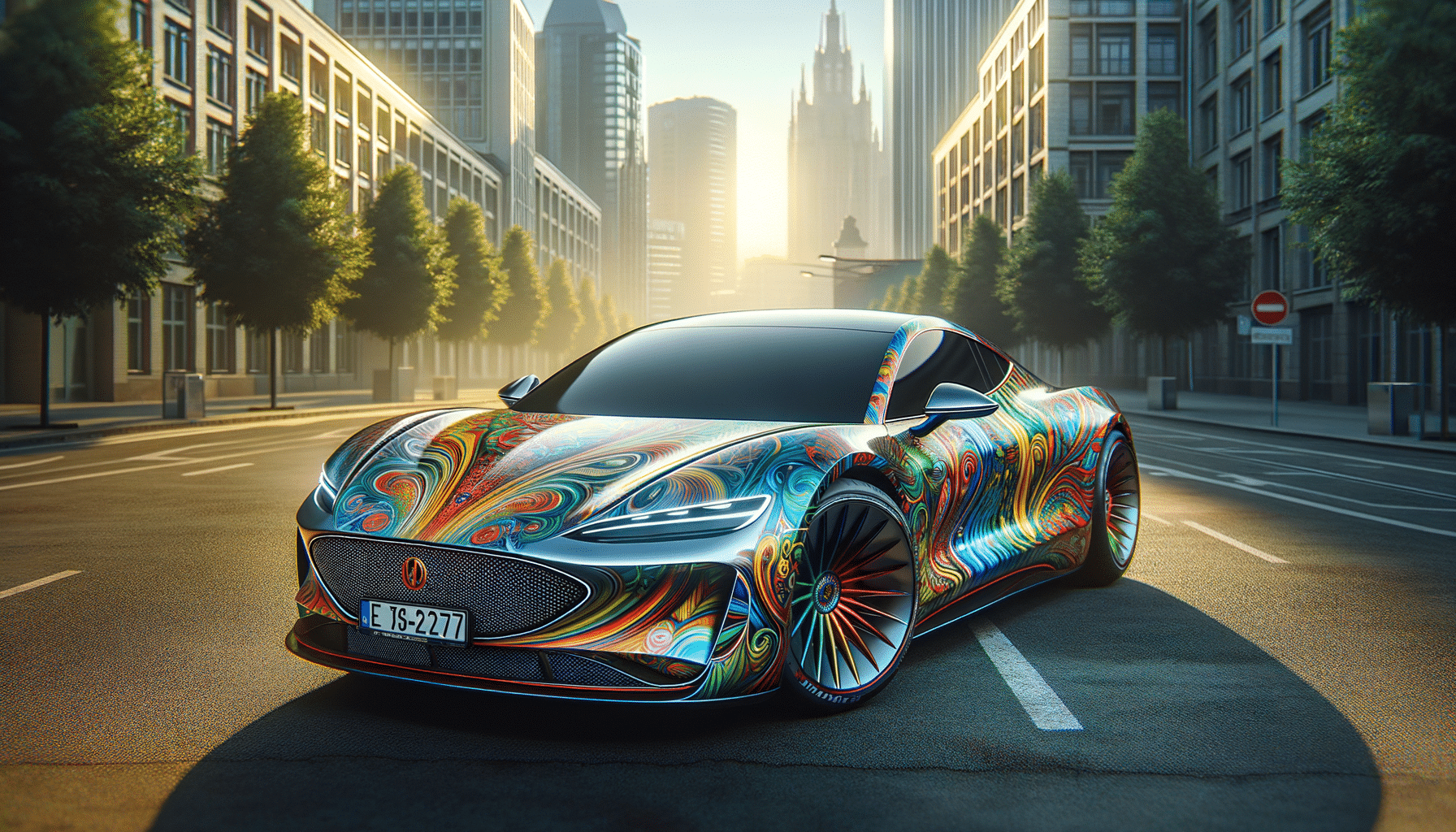
The complete guide on car wrap services
Introduction to Car Wrap Services
Car wrap services have emerged as an innovative solution for vehicle customization, blending aesthetics with functionality. This process involves applying a large vinyl graphic or decal over the original paint of a vehicle. Unlike traditional paint jobs, car wraps provide a temporary yet durable option for those looking to personalize their vehicles without committing to a permanent change. The popularity of car wrap services has surged in recent years, driven by the growing demand for unique and personalized vehicle appearances. Whether for personal use or business advertising, car wraps offer a versatile platform for creativity, allowing for a wide range of designs, colors, and finishes.
The appeal of car wrap services extends beyond mere aesthetics. Car wraps serve as a protective layer, safeguarding the original paintwork from scratches, UV rays, and other environmental hazards. This dual functionality makes them a cost-effective option for car owners who wish to maintain their vehicle’s resale value while enjoying a fresh and dynamic look. Furthermore, the application and removal processes are relatively straightforward, offering flexibility for those who wish to change their vehicle’s appearance periodically.
The Benefits of Car Wraps
The benefits of car wraps are numerous, making them an attractive option for many vehicle owners. One of the most significant advantages is the protective quality of the wrap. By acting as a shield against minor abrasions and harmful UV rays, car wraps help preserve the original paint, thereby maintaining the vehicle’s resale value. This protective layer can be particularly beneficial in urban environments where vehicles are more prone to damage.
Car wraps also offer unparalleled customization opportunities. Owners can choose from a vast array of colors, finishes, and designs, allowing them to express their individuality or promote their business. Whether opting for a sleek matte finish or a vibrant glossy design, the possibilities are virtually endless. Moreover, car wraps can be a more economical option compared to traditional paint jobs, which can be both costly and time-consuming.
Another notable benefit is the reversibility of car wraps. Unlike paint, which is permanent, wraps can be removed without damaging the underlying surface. This feature provides car owners with the flexibility to update or change their vehicle’s appearance as desired, making it a popular choice for those who frequently change styles or use their vehicles for different promotional campaigns.
Types of Car Wrap Materials
When it comes to car wraps, the choice of material is crucial in determining the overall appearance and durability of the wrap. Common materials used in car wraps include cast vinyl and calendared vinyl. Each type has its distinct characteristics and applications.
Cast vinyl is known for its durability and conformability, making it ideal for complex curves and surfaces. It is often chosen for high-end applications due to its long-lasting nature and ability to maintain color vibrancy over time. Cast vinyl wraps are typically used in full vehicle wraps and are favored for their ability to withstand harsh weather conditions and UV exposure.
Calendared vinyl, on the other hand, is generally more cost-effective and is suitable for flat surfaces or simple curves. While not as conformable as cast vinyl, it is still a popular choice for partial wraps and decals. Calendared vinyl is perfect for short to medium-term applications, offering a balance between affordability and performance.
In addition to these, specialty materials such as carbon fiber and chrome wraps are also available, allowing for even more customization. These materials can create unique textures and effects, providing a distinctive look that stands out on the road.
Creative Applications of Car Wraps
Car wraps are not limited to aesthetic enhancements; they serve various creative and functional purposes. One of the most common applications is in advertising. Businesses leverage car wraps as mobile billboards, capitalizing on the visibility that vehicles provide. This form of advertising is cost-effective and reaches a wide audience, making it a popular choice for companies of all sizes.
Moreover, car wraps can be used to display temporary promotions or seasonal themes. This flexibility allows businesses to update their marketing messages without the need for a permanent alteration. Additionally, car wraps can be an excellent tool for brand reinforcement, ensuring that a company’s vehicles present a cohesive and professional image.
On a personal level, car enthusiasts often use wraps to explore bold and unique designs that reflect their personalities. From racing stripes to custom graphics, the creative possibilities are endless. Car wraps also provide an opportunity to experiment with different styles, such as retro or futuristic themes, offering a canvas for artistic expression.
Conclusion: The Future of Car Wraps
The future of car wrap services looks promising as technology and materials continue to evolve. With advancements in printing techniques and the development of more durable and environmentally friendly materials, car wraps are set to become even more versatile and accessible. As consumers increasingly seek personalization options that offer both style and protection, car wraps will likely remain a popular choice.
For businesses, the use of car wraps as a dynamic advertising tool will continue to grow, driven by their ability to reach a broad audience with minimal investment. As the industry expands, we can expect to see even more innovative applications and designs, solidifying car wraps as a staple in vehicle customization and marketing.
Whether for personal expression or commercial use, car wraps provide a unique blend of creativity, functionality, and flexibility. As this trend continues to gain momentum, it offers a glimpse into the future of how we view and utilize our vehicles, transforming them into moving works of art.